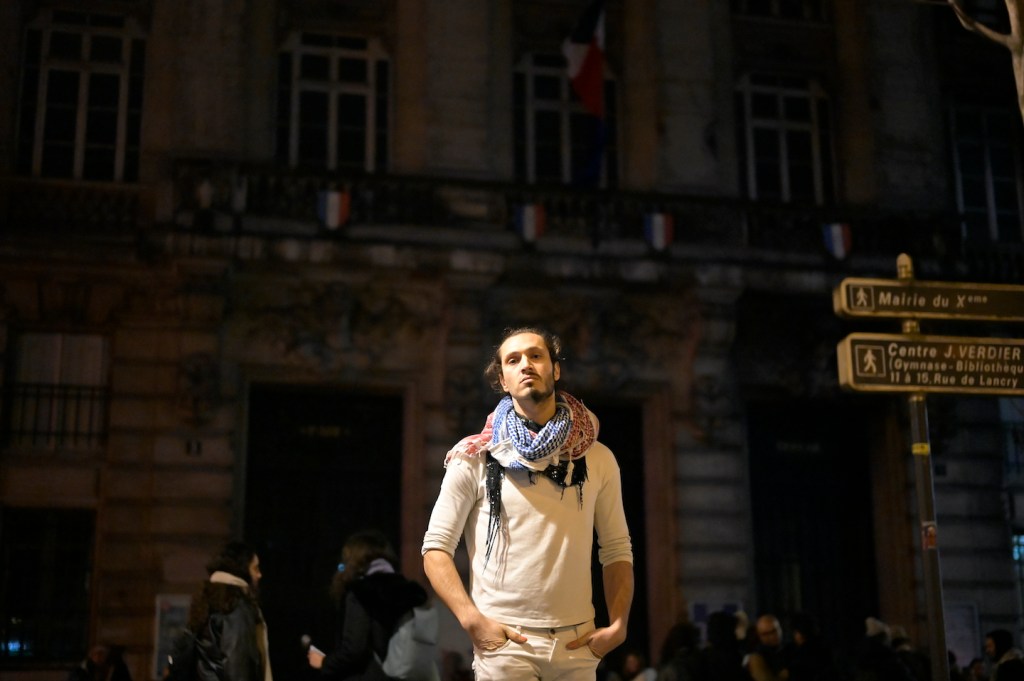Has there even been a worse time to be queer in Indonesia than right now? More than two years ago, the so-called “LGBT emergency”—a catchphrase used by politicians and the press to describe what is basically state-sponsored homophobia—started to make the rounds as a political talking point. Now, as the country enters another heated election year, this “emergency” has emerged as candidates’ go-to issue to drive voters to the ballot box.
In a single month, the mayor of the conservative city of Padang, West Sumatra, led about 1,000 people on a march through the city to “reject LGBT,” another announced plans to fine queer residents for being a “public nuisance,” and a mob stripped and beat two transgendered women in the suburbs of the Indonesian capital.
Videos by VICE
Watch: Combating Discrimination in China’s Trans Community
And the list goes on, with incidents ranging in severity from public shaming and evictions, like this incident in East Java, to outright violence, like the hour-long attack in Bekasi, West Java. Across the country, local officials and mobs of angry men are rushing to prove just how against the LGBTQ community they can be.
It’s not the first time experts warned that things were going to get worse as the country crept closer to election day. Back in late October, when police decided to arrest a gay couple for allegedly running a LGBTQ community Facebook page, one activist told VICE that it looked like politicians had identified LGBTQ as the new vote-getting issue after exhausting rhetoric about the made-up threat of communists seizing control of Indonesia.
That’s because, according to a recent survey conducted by Saiful Mujani Research and Consulting, 87.6 percent of respondents said that they considered the LGBTQ community and “threat,” while 81.5 percent of those questioned thought that they were “religious deviants.”
And as this rhetoric intensifies, there’s less political will for politicians who might disagree with the aims of this these “reject LGBT” groups to speak up.
“There has been an organized effort by religious groups to criminalize the LGBTQ community,” Dede Oetomo, of GAYa Nusantara, Indonesia’s oldest LGBTQ organization, told VICE. “And the central government is too scared to take any action. I think political parties are too scared to speak up and protect us.”
On the ground, this environment is causing Indonesia’s LGBTQ community to live in fear of potential arrest or worse. Rina, a trans woman living in the suburbs of Jakarta, told VICE that she feels like she has to look over her shoulder all the time after being doxxed by a woman she once called a friend.
“I don’t feel like leaving my kost anymore” she told VICE, referring to her rented boarding room. “I would rather go somewhere far away when I want to hang out.”
But life wasn’t always this hard for Rina. Back when she was a college student, she was able to attend an Islamic university without much issue. None of her friends or professors discriminated against her for being a trans woman. Now, today, it’s gotten so bad we’re not even using her real name in this story to protect her from potential reprisals.
And, at least according to the data, she’s right to be concerned. This month alone, there were three separate incidents targeting the trans community by the police, including one incident where officers detained, then sprayed trans women with a firehose, posting the entire thing to social media.
Instances of violence targeting the LGBTQ community are higher amongst trans women than anyone else, according to a study conducted by the People’s Legal Aid Foundation (LBHM). That study found that 74 percent of all cases of violence and discrimination based on gender and sexual orientation that occurred in 2017 were targeting trans men and women.
With the election still more than five months away, experts warn that the worst of this might be ahead of us. And all of this is happening despite the fact that, outside of Aceh, Indonesia’s only Sharia province, there are no laws criminalizing the LGBTQ community.




